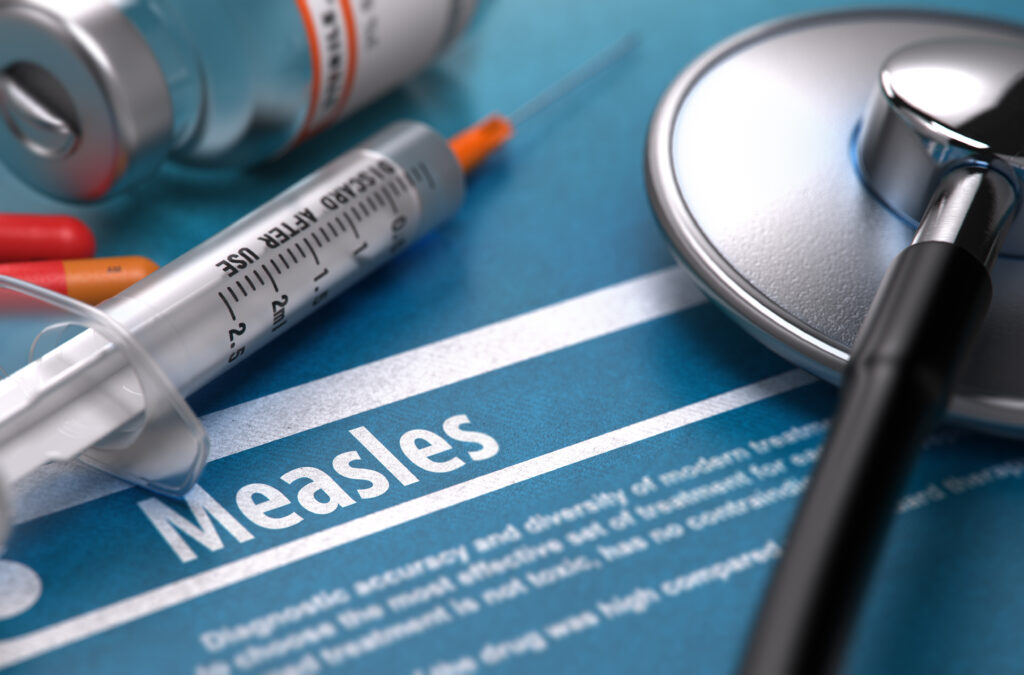The West Virginia Department of Health (DoH) announced Friday it is monitoring possible transmission of measles following the state’s first case since 2009.
The Monongalia County resident had traveled internationally, and the DoH described the person as “undervaccinated” in a press release.
Since that announcement, state health leaders have learned of 152 additional people who were potentially exposed.
One-hundred-and-twenty-eight of those potentially exposed are West Virginians from 30 different counties.
Working alongside the Monongalia County Health Department (MCHD), the DoH has identified that 62 individuals exposed in West Virginia lack documentation of adequate protection against measles and are considered high risk.
According to a press release, the Bureau for Public Health has been working closely with the MCHD to make sure they have supplies for testing measles as well as availability of the Measles, Mumps, and Rubella (MMR) vaccine.
State Health Officer, Dr. Matthew Christiansen, urged West Virginians with questions about their immunity to get tested.
“Measles is a serious disease that can cause severe symptoms, especially in the most vulnerable kids and adults who are immunocompromised,” Christiansen said. “The MMR vaccine is the best line of defense against measles. If you are unsure about your vaccination history, you can either get vaccinated or a blood test can be ordered through your local healthcare provider to determine your level of immunity.”
According to MCHD, the adult resident developed symptoms and sought medical treatment through the WVU Medicine system. The patient was instructed to isolate at home while test results confirmed the case on April 21, 2024.
Once put into isolation, close contacts, including family members, were educated on isolation and symptom identification, said Edward Abbott, RN, program manager of MCHD Infection Control and Disease Prevention.
A highly contagious viral infection, Measles symptoms can present seven to 14 days after exposure and include high fever, cough, runny nose and red watery eyes.
Three to five days after symptoms begin, a rash will form, starting on the face and spreading downward.
In one out of every 1,000 measles cases, patients can develop encephalitis and subsequent brain damage. One to three of every 1,000 children infected with measles will die from respiratory and/or neurologic complications.
The measles vaccine is typically given in two doses with the first recommended between 12 and 15 months of age. The second dose is recommended between four and six years and, in West Virginia, is required before entering Kindergarten.
Appalachia Health News is a project of West Virginia Public Broadcasting with support from Marshall Health.




















